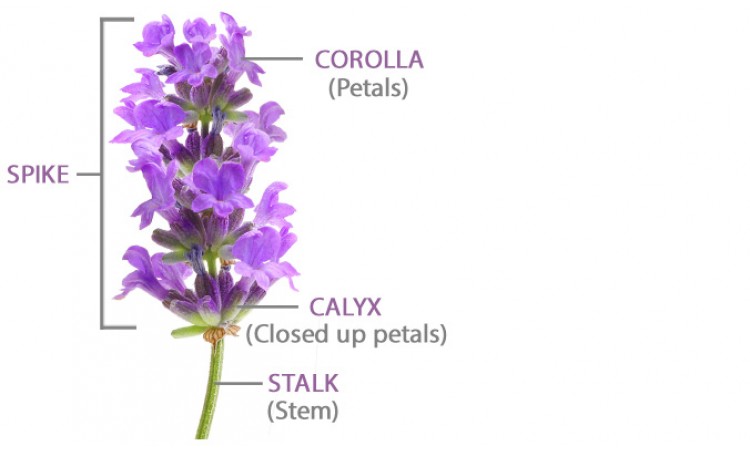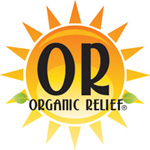
All About Lavender Oil
IN ESSENCE...
- With a calming, physically and emotionally balancing fragrance, it has commonly been used for its relaxing effects on the body.
- Lavender has cosmetic, odourous, and medicinal uses, demonstrating soothing, sedative activities in each form, which can include oils, gels, lotions, soaps, shampoos, sprays, and candle making.
- There are over 30 species of Lavender and hundreds of genotypes that are distinguished by their growth form and the chemical compositions of their essential oils.
- Lavender plant growing conditions such as the season, climate, moisture levels, cloud coverage, and soil quality contribute to the quality of the distilled essential oil.
- The highest quality essential oil is derived from steam distilling only the fresh Lavender flowers and no other part of the plant.
- It is best to avoid using Lavender essential oil when pregnant, while on medication that could induce drowsiness, or when undergoing anesthesia.
HISTORY OF LAVENDER OIL
Lavandula angustifolia, better known as Lavender, is a perennial evergreen plant that has produced the most used essential oil in the world for over 2500 years. Thriving in oceanic climates with dry, rocky, sandy terrain, Lavender can be found in the Mediterranean region, Europe, Africa, the Canary Islands, the Middle East, and India.
The name Lavender is believed to be derived from the Latin word “lavare,” meaning “to wash,” as it was often used in baths and laundry for its fragrant properties. With a calming, physically and emotionally balancing fragrance, it has commonly been used for its relaxing effects on the body. According to ancient texts, its purposes range from medicinal to religious, having been used to clean cuts and to soothe bruises and skin irritations, as well as to scent the air for spiritual practices. Other historical uses for this oil included mummification and perfumery for the Egyptians, while for the Romans it was used in baths and in cooking.
BENEFITS OF LAVENDER ESSENTIAL OIL
Used medicinally, Lavender essential oil has been found to eliminate harmful bacteria, relieve muscle spasms, relieve flatulence, disinfect and soothe inflamed skin especially when resulting from a venomous, itchy bug bite, promote speedy healing of irritated and scarred skin, and to relieve muscle tension when used in a massage.
When used in aromatherapy, this mild sedative is reputed to reduce stress by relaxing the brain waves, which is also said to reduce cortisol levels that contribute to the stress hormone. As cortisol leads to lower immunity, Lavender would accordingly support the immune system by helping relieve feelings of stress that can weaken health. Lavender is believed to help balance hormones, to reduce feelings of nervous tension, and based on empirical evidence, has worked to reduce feelings of depression for some individuals. Due to its calming and relaxing properties, it can work as a sleep aid for those suffering from insomnia.
As illustrated, Lavender essential oil is reputed to have many therapeutic properties. The following highlights its many benefits and the kinds of activity it is believed to show:
COSMETIC:
anti-septic, anti-inflammatory, deodorant, relieving, soothing, cytophylactic, cicatrisant.
ODOROUS:
anti-depressant, anti-rheumatic, anti-spasmodic, decongestant, deodorant, relaxing, sedative, soothing, nervine.
MEDICINAL:
anti-septic, analgesic, anti-convulsant, anti-depressant,
anti-rheumatic, anti-spasmodic, anti-inflammatory, anti-viral,
bactericidal, decongestant, relieving, soothing, vulnerary, sudorific,
rubefacient, hypotensive, emmenagogue, diuretic, cytophylactic,
cicatrisant, carminative.
CULTIVATING AND HARVESTING QUALITY LAVENDER ESSENTIAL OIL
Lavender plant growing conditions contribute to the quality of the distilled essential oil. This means the season, climate, moisture levels, and even the amount of cloud coverage affects the quality of the finished product, as not all plants are hardy in all environments. Soil quality is a major factor in the quality as well – a high amount of nitrogen in the soil, for instance, can promote disease in Lavender plants, causing them to appear sickly and leading to a decrease in flower growth.
Delicate or “tender” varieties of Lavender need to be kept warm and will not survive outdoors in the winter, thus needing to be potted and kept inside during this season in sunny locations with good air circulation. Despite their ability to tolerate heavy rains while still outside, they must be allowed adequate drainage, as they thrive in dry, hot sunny areas. High humidity makes Lavender plants susceptible to fungus growth, and for this reason good air circulation is imperative to their growth.
Synthetic Lavender perfume oils created in a lab to mimic the scent of real Lavender will also have a lesser quality than naturally derived Lavender essential oils due to differences in the molecular structures between the synthetic and natural versions. This is because only the pure plant oil contains beneficial volatile compounds and general benefits.
Lavender blooms vary in shapes and sizes and they grow on long spikes or stems. Their essential oils can be found in microscopic glands on the outside ring of flower petals (the calyx), the inside ring of flower petals (the corolla), the leaves, and on the stalks and branches. There are various developmental stages for Lavender flowers, and the ideal time for harvesting Lavender essential oil is when the flowers are in full bloom, that is to say fully developed. At this stage, the flowers at the top of the stem will have already burst open, the lower half will begin to open up as well, and almost the entire flower head is open. Harvesting Lavender before it fully matures means the oil will not retain as high a quality as it could potentially have. Whereas, the more shriveled the flower petals on the stem, the more volatile molecules it loses and the weaker the fragrance becomes.
Please refer to the image at the top of the blog for the flower parts mentioned above:

